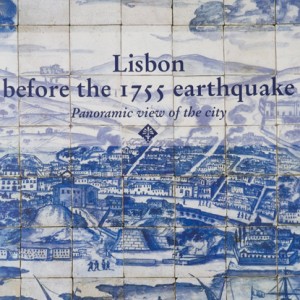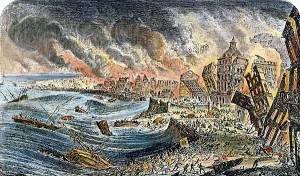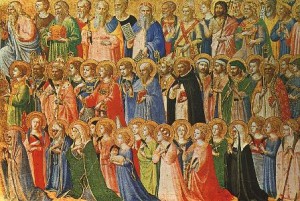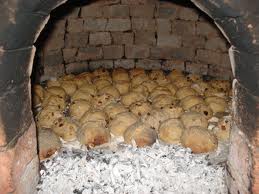On this day 258 years ago with the vast majority of Lisbon, Portugal’s population at church, earthquakes struck the city followed by tsunami waves and mass fire. The “Princess” of Europe’s capitals was destroyed. Today, the grievous day is often referred to as, “The Great Lisbon Earthquake”. I would like to send out a prayer to those who were lost on this day in 1755 and the subsequent months that proceed these horrific events.
My novel-in-progress, Cut From The Earth, strives to recreate Lisbon before the tragedies, while Portugal was at the pinnacle of its colonial wealth and at its height of artistic developments in tile making. I’ve tried to bring to life what it might have been like on this disastrous day, and afterwards — and what was lost forever.
The exact origins of All Saints Day are uncertain. Although, after Christianity was legalized in Rome by Emperor Constantine in 313 AD a common commemoration of saints and martyrs of the known and unknown began to appear in various regions and on different dates throughout the Church’s reach.
The primary reason for establishing a common feast day was due to the desire to honor the great number of martyrs, as there were not enough days of the year for a feast day for each martyr and many died in groups defending Christianity in the late Roman Empire. Therefore, a common feast day for all saints and martyrs seemed logical and appropriate. According to accounts, it was Pope Gregory III (731-741 AD) who dedicated an oratory in the original St. Peter’s Basilica in honor of all the saints and martyrs on November 1st in Rome, thus officiating the date.
All Saints Day in 1755 Lisbon was not only a day to attend mass, it was also a day to make offerings, to light candles, and was to be a day of placing flowers upon the graves of loved ones. In addition, it was the day when groups of children went door-to-door before mass with cloth bags or baskets to receive chestnuts, pomegranates, and little cake-like breads called pão-por-Deus (God’s bread) .This tradition of giving and receiving pão-por-Deus would become a vital link to survival for those that lived through the dreadful day and those that followed, as they fled Lisbon, begging for God’s bread in the countryside.
Today may we remember the saints and martyrs and all those who have gone before us, while we prepare for All Souls Day tomorrow, November 2. It is a good day to read your favorite saint’s story (whatever your beliefs and affiliations) and to remember those who’ve come before us.
Click here for recipe: pão-por-Deus (God’s bread)




